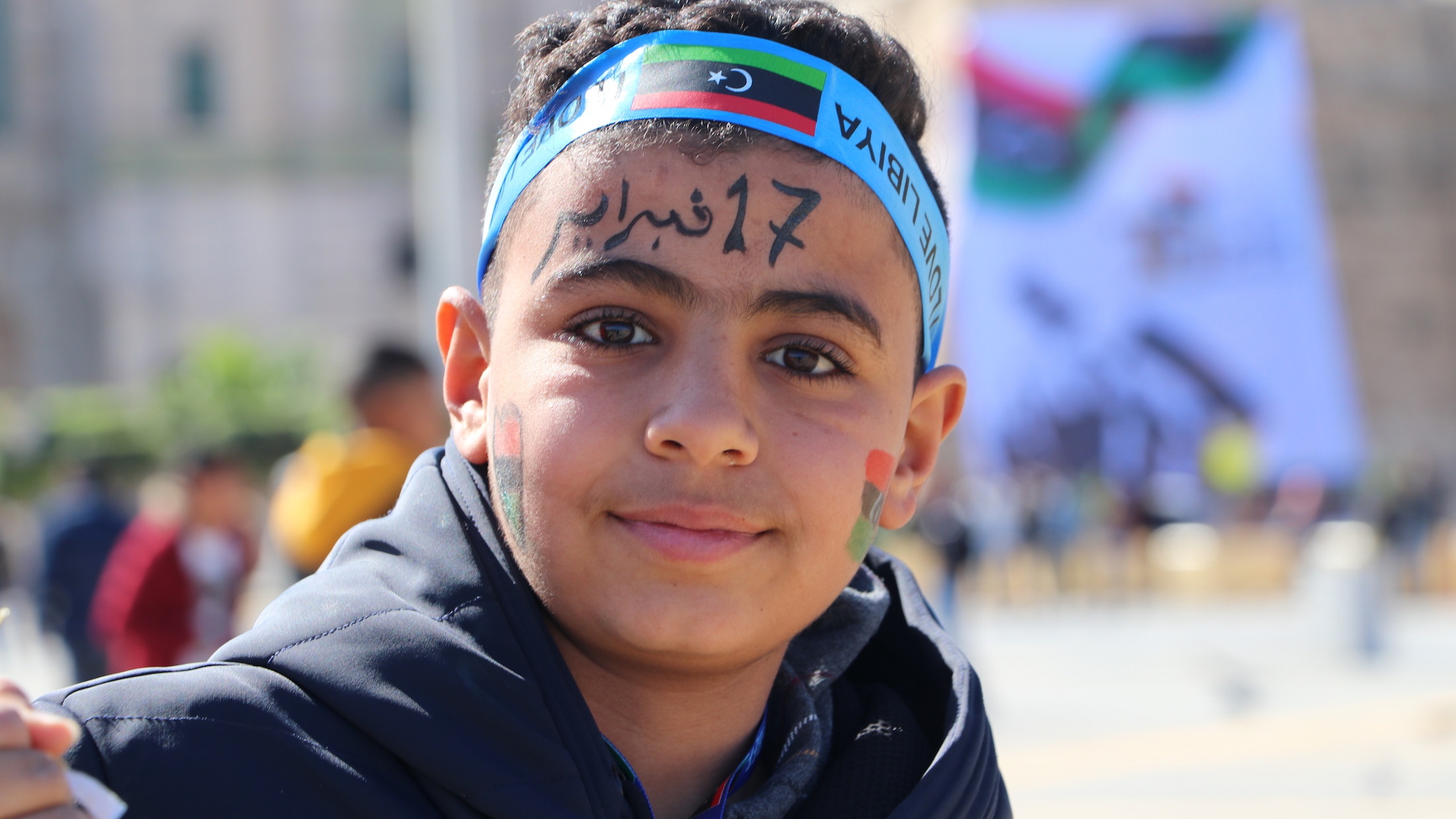A Decade After Gadhafi’s Fall, Libyans Still Searching for Elusive Freedom, Stability
The 2011 uprising gave rise to two devastating civil wars and deteriorating living conditions
The brutal regime of Libya’s Col. Moammar Gadhafi collapsed after four decades in power, under the weight of mass protests and demonstrations from Libyans who demanded freedom.
Gadhafi’s iron-fist rule began with a bloodless coup in 1969 and ended in a bloodbath 42 years later.
The revolution that ousted Gadhafi brought chaos and violence to Libya. Many Libyans joined a myriad of armed factions that mushroomed immediately after the dictator’s downfall.
And 10 years later, Libyans are still searching for the elusive freedom and stability that they hoped to achieve with the removal of the dictatorship.
The violence that ensued led to tens of thousands of lost lives; countless families were displaced and uprooted from their homes.
Parts of Libya are celebrating the 10th anniversary of the fall of Gadhafi: Cities across the western portion of the country, including the capital Tripoli, held military parades and fireworks displays.
In the eastern part of the divided country, dominated by rebel military commander Khalifa Haftar, scattered celebrations were seen.
A failed military campaign by Haftar on Tripoli last June is to blame for the subdued atmosphere, say his supporters; however, a national holiday was declared to commemorate the day.
Countless dreams of young people were shattered over the last decade.
The geographic divide continues and there seems to be no political resolution on the horizon.
Libya is still at war with itself.
“I’m angry and frustrated. We were happy to see Gadhafi go but life has gotten worse for us,” says Mohammad Abdel Jalil.
Abdel Jalil doesn’t have a job. He lives with his older brother in Tripoli. Jalil, as his friends call him, was a member of an armed group for four years until an injury to his left leg confined him to a wheelchair.
“Because of my situation, there are few jobs I can do. If we had a strong government, I could receive financial help from it.”
Jalil says he’s not angry but the euphoria that he and the rest of the country felt after the revolution has evaporated.
“I still think any life is better than living under the old regime but I expected more.”
Dalal, a 27-year-old makeup artist who resides in the eastern city of Benghazi, says she doesn’t remember life under Gadhafi, but she heard dreadful stories from her family of the late leader’s repressive rule.
“One thing everyone seems to miss is having security,” says Dalal.
She had hoped to attend university and study nursing – a dream demolished by the prolonged instability in the country.
“My family was scared that I could get kidnapped or hurt by fighting if I attended university.”
Jobs are scarce and hard to come by, salaries are inconsistent, gas availability depends on the security situation, and electricity, too.
Munir Elhbibi, who graduated from college five years ago, sits idle at home. He has been unemployed, working odd jobs in the capital, Tripoli.
“My goal now is to leave,” says Elhbibi.
“I don’t have a future here anymore; I can’t keep living off my family like this.”
He, like thousands of young Libyans, is eager to cross the Mediterranean for Europe’s shores in search of a better life.
Elhbibi says that instability in the war-torn North African nation has crushed its economy, which was crippled even more by the COVID-19 pandemic, and forced thousands of his fellow countrymen to leave.
Since 2014, the country has been divided between east and west, with the Libyan National Army led by strongman Haftar to the east, and, to the west, the internationally recognized Government of National Accord headed by Fayez al-Sarraj.
But there’s new hope for Libyans: A UN-brokered truce between the two factions has held since last October and elections are scheduled for December.


